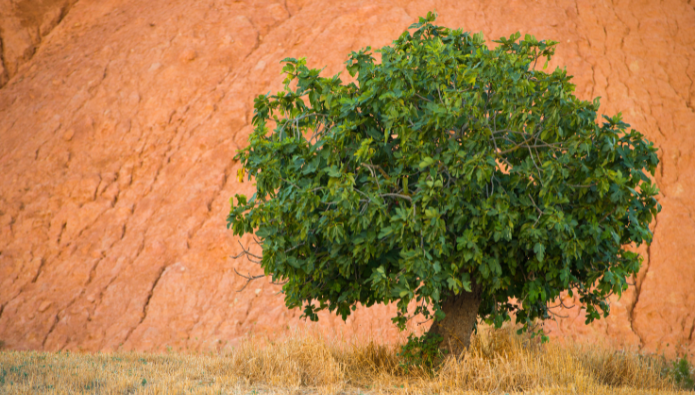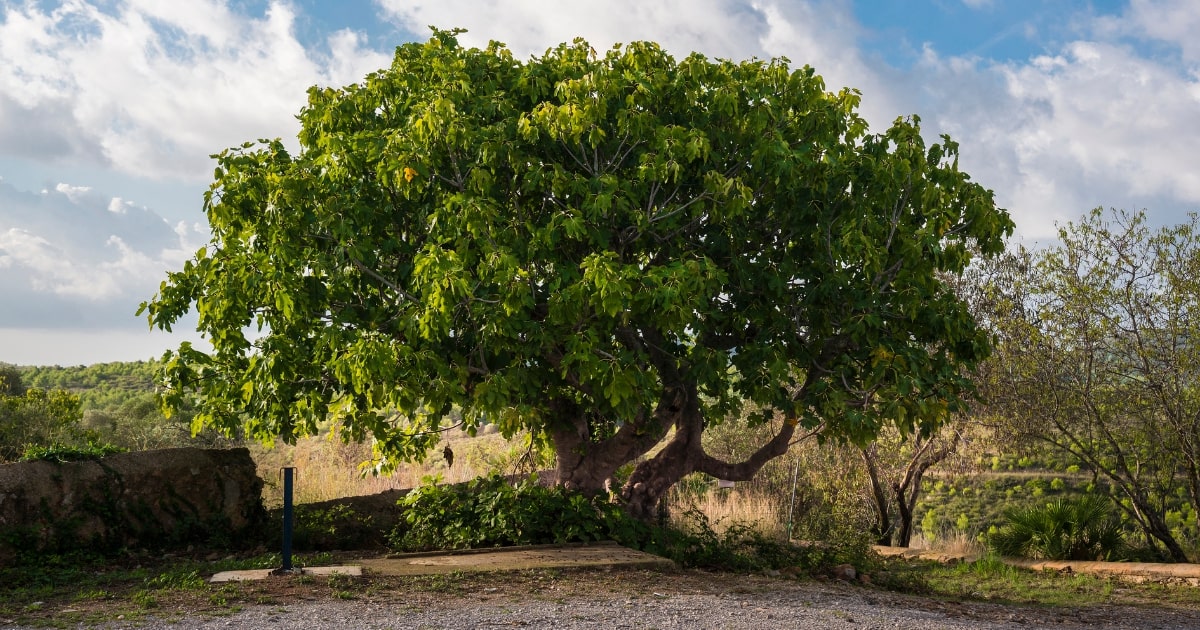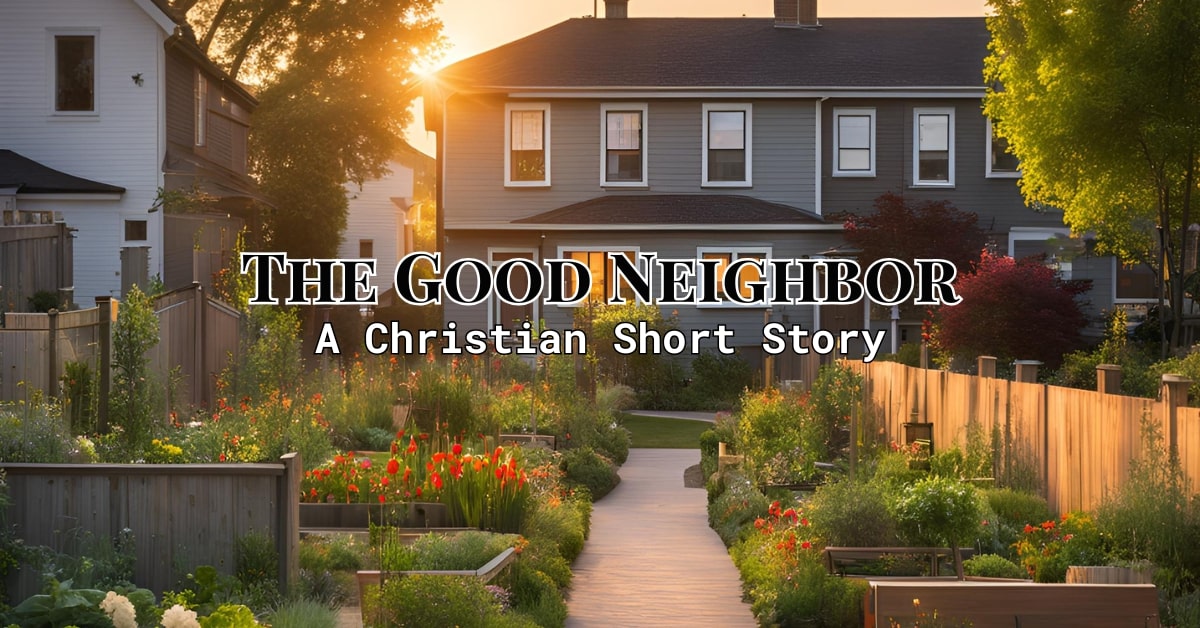In the tapestry of teachings that Jesus Christ left us, the Parable of the Barren Fig Tree, found in Luke 13:6-9, stands out for its profound simplicity and depth. This short story, nestled within the Gospels, offers a rich exploration of patience, hope, and the potential for transformation. At first glance, it tells of a gardener’s plea for more time to nurture a fruitless tree, but beneath the surface, it carries layers of meaning that resonate with the human experience of growth, nurturing, and second chances.
This Barren Fig Tree touches on themes that are as relevant today as they were two thousand years ago, reminding us of the importance of patience, both with ourselves and with others, and the potential within each of us to change and bear fruit in our lives. It challenges us to look beyond immediate results and to see the value in care, effort, and persistence. In a world that often prioritizes instant gratification and tangible success, the message of the Barren Fig Tree invites us to reconsider our expectations and to embrace the process of growth and development.
As we delve into this blog post, we will unpack the parable’s narrative, explore its deeper meanings, and consider how its lessons can be applied in our daily lives. From understanding the value of giving and receiving second chances to recognizing the transformative power of care and patience, the Parable of the Barren Fig Tree offers wisdom that can guide us in our personal journeys and interactions with others.
Join us as we explore this captivating parable, seeking to glean insights that can help us cultivate a more patient, hopeful, and fruitful life.
Also Read: Parable of Jesus: The Faithful Servant
Parable of Jesus Christ: The Barren Fig Tree
The passage from Luke 12:42-48 is known as the Parable of the Faithful Servant (or the Faithful and Wise Manager). Here it is:
Then he told this parable: “A man had a fig tree growing in his vineyard, and he went to look for fruit on it but did not find any. So he said to the man who took care of the vineyard, ‘For three years now I’ve been coming to look for fruit on this fig tree and haven’t found any. Cut it down! Why should it use up the soil?’
‘Sir,’ the man replied, ‘leave it alone for one more year, and I’ll dig around it and fertilize it. If it bears fruit next year, fine! If not, then cut it down.'”
This parable speaks to the themes of patience, care, and the potential for change and growth, emphasizing the value of giving additional opportunities for improvement and fruitfulness.
Also Read: The 45 Parables of Jesus
Interpretation of The Parable of The Barren Fig Tree

The Parable of the Barren Fig Tree, as recounted in Luke 13:6-9, is a compelling narrative rich with symbolism and moral lessons. At its heart, this parable speaks to themes of patience, mercy, cultivation, and the potential for redemption and productivity. Let’s delve deeper into its layers of meaning and uncover the insights it holds.
The Symbolism of the Fig Tree
In the parable, the barren fig tree represents individuals in their spiritual or personal journeys. Just as the fig tree is expected to bear fruit, so too are individuals expected to show growth, development, and productivity in their lives. The barren fig tree’s initial lack of fruit can be seen as a metaphor for unfulfilled potential or a period of stagnation that many experience.
The Call for Patience and Mercy
The owner’s initial reaction to cut down the barren fig tree reflects a natural human inclination towards impatience and immediate judgment. However, the gardener’s plea for more time introduces the virtues of patience and mercy. This interaction highlights the importance of giving ourselves and others the opportunity to change and grow. The gardener’s request for an additional year to tend to the tree underscores the belief in potential redemption and transformation, emphasizing that progress and change often require time and patience
The Role of Cultivation
The gardener’s commitment to dig around the tree and fertilize it illustrates the necessity of active effort in nurturing growth. This aspect of the parable teaches that growth, whether spiritual, personal, or professional, is not passive. It requires intentional actions—cultivation, care, and sometimes intervention—to create an environment conducive to growth and productivity. The barren fig tree’s chance at bearing fruit is contingent on both the opportunity to grow and the receipt of necessary care and attention.
The Consequences of Stagnation
While the parable is imbued with hope and the promise of mercy, it also carries a warning: if the fig tree remains barren, it will eventually be cut down. This outcome serves as a sobering reminder of the consequences of continued stagnation and the failure to bear fruit even after being given additional chances and support. It urges individuals to seize opportunities for growth and to actively engage in their own developmental processes.
The Broader Implications
The Parable of the Barren Fig Tree extends beyond individual growth, touching on themes relevant to communities and societies. It calls for leaders and members of communities to exhibit patience and mercy towards those who are struggling, to invest in the cultivation of potential, and to recognize the value of giving second chances. It’s a call to action not only to seek growth within ourselves but also to foster an environment that encourages and supports growth in others.
Also read: Parable of Jesus: The Watchful Servants
Practical application of the Parable of the Barren Fig Tree in Our Daily Lives

How can you apply The Barren Fig Three Parable in practically in your daily life? Let’s take a look at it.
The Parable of the Barren Fig Tree is not just a story to be heard and forgotten; it offers actionable insights that can profoundly impact our daily lives. By embracing the lessons of the barren fig tree, we can cultivate a more patient, nurturing, and fruitful existence. Here’s how to apply the parable’s teachings through various aspects of our lives.
Cultivating Personal Growth
Embrace Patience with Yourself: Just as the gardener gave the barren fig tree more time to bear fruit, learn to give yourself time to grow and flourish. Personal development is a process that doesn’t happen overnight. Recognize and accept your periods of barrenness as phases of potential growth.
Nurture Your Potential: Actively engage in nurturing your skills and talents. Like the gardener who intended to dig around the tree and add fertilizer, invest in yourself through education, practice, and healthy habits that promote personal growth.
Fostering Patience and Understanding in Relationships
Offer Second Chances: The barren fig tree teaches us the value of mercy and patience, not just with ourselves but also with others. In your relationships, be quick to offer second chances and slow to pass judgment. Understand that everyone has periods of growth and stagnation.
Support the Growth of Others: Just as the fig tree needed care to bear fruit, people in our lives often need support and encouragement to reach their potential. Be someone who nurtures others’ growth through positive reinforcement, support, and love.
Contributing to Community and Society
Promote an Environment of Growth: Apply the lesson of the barren fig tree by contributing to a community or societal environment that encourages growth and development. Whether through volunteer work, mentoring, or advocating for constructive policies, your efforts can help create a fertile ground for others to flourish.
Practice Mercy and Patience at a Larger Scale: On a broader societal level, the parable encourages us to advocate for systems that give individuals the opportunity to rehabilitate and improve. This could mean supporting restorative justice initiatives, educational reforms, or social programs designed to uplift those who have fallen behind.
Professional and Leadership Development
Lead with Patience and Vision: In leadership roles, mimic the gardener’s patience and foresight. Recognize the potential in your team members, even when they’re not currently exhibiting their best. Provide them with the resources, guidance, and time they need to develop.
Cultivate a Productive Work Environment: Just as the barren fig tree needed extra care to bear fruit, employees thrive in environments where their growth is nurtured. Create a workplace culture that values continuous learning, feedback, and personal development.
Conclusion

In our exploration of the Parable of the Barren Fig Tree, we’ve traversed a journey from understanding its rich symbolism to uncovering its profound implications for our daily lives. This parable, with its deep roots in themes of patience, mercy, and the nurturing of potential, extends a timeless message that resonates with the essence of human growth and transformation. The barren fig tree, standing as a metaphor for periods of stagnation and unproductivity in our lives, prompts us to reflect on the importance of giving and receiving second chances, as well as the critical role of active cultivation in realizing our inherent potential.
Through the narrative of the barren fig tree, we are reminded that growth and productivity often require time, patience, and the right conditions. Just as the gardener pleaded for more time to nurture the tree back to fruitfulness, we too are encouraged to approach our own growth and the growth of those around us with a sense of patience and understanding. The parable teaches us to value the process of cultivation—be it through self-improvement, the support we offer to others, or the efforts we make to contribute to a nurturing environment.
As we conclude this reflection on the Parable of the Barren Fig Tree, let us carry forward the lessons of hope, mercy, and the transformative power of care. May we approach our lives and the lives of others with the same patience and commitment to growth that the gardener showed to the barren fig tree, recognizing that with time and effort, even the most barren areas of our lives can become fruitful once again.






